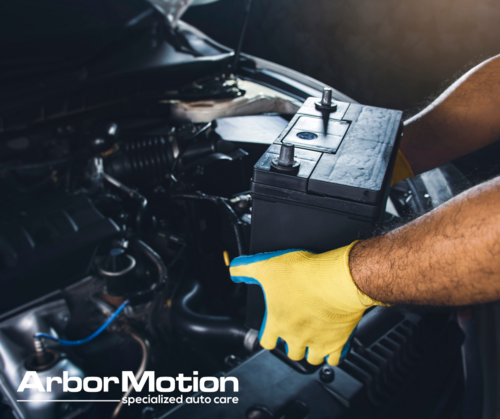Checking Your Battery Health: Tips for Longevity

Your car’s battery powers everything from your ignition to the lights and electronics, making it the most critical component of your car. Many drivers overlook regular battery maintenance until they find themselves stranded with a dead battery. To avoid unexpected breakdowns, it’s crucial to monitor your battery’s health and consider factors like where you park, your driving style, and routine maintenance.
Where Do You Park Your Car?
Did you know where you park your car plays a significant role in battery life? Extreme temperatures can negatively impact battery performance.
- Parking Inside (Garage): If you have access to a garage, parking your car indoors can protect the battery from extreme weather fluctuations. In cold weather, a garage keeps the battery from freezing, while in hot weather, it prevents overheating.
- Parking Outside: Leaving your car exposed to harsh weather conditions puts additional strain on your battery. Cold temperatures slow down the battery’s chemical reactions, reducing its ability to hold a charge, while excessive heat can cause the battery’s fluid to evaporate, leading to internal damage.
What’s Your Driving Style?
Your driving habits also affect the health of your car’s battery. If you frequently take short trips or drive aggressively, you could be putting unnecessary stress on your battery.
- Short Trips: If your typical drive consists of short trips around town, your battery may not have enough time to fully recharge. The alternator needs time to replenish the battery, so constant short trips can lead to a gradual loss of power.
- Stop-and-Go Driving: Frequent stops and starts can put extra strain on your battery and the charging system. If you drive in heavy traffic often, consider longer trips on open roads to help the alternator maintain a proper charge.
Routine Battery Maintenance is Essential
To ensure your battery stays in top shape, follow these maintenance tips:
- Regularly Check Battery Terminals: Corrosion buildup on the terminals can lead to poor connections and electrical issues.
- Monitor Battery Voltage: Use a multimeter to check your battery’s voltage periodically. A fully charged battery should read around 12.6 volts when the engine is off and around 13.7–14.7 volts when running.
- Watch for Warning Signs: Slow engine cranking, dim headlights, or dashboard warning lights could indicate a weakening battery.
Bring Your Car to ArborMotion for Battery Maintenance!
If you’re experiencing battery issues or suspect your battery is reaching the end of its lifespan, seeking professional assistance is a smart choice. By staying proactive with your battery maintenance, you can extend its lifespan and avoid unexpected breakdowns. Whether it’s adjusting where you park or modifying your driving habits, these small changes can make a big difference in preserving your car’s battery health.
For expert diagnostics and repair services, European Auto Repair in Ann Arbor at ArborMotion offers comprehensive battery testing and replacement services. Schedule an appointment with for battery maintenance today!











